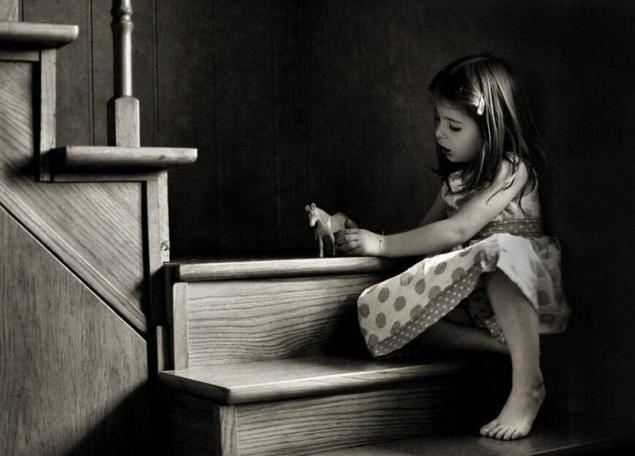419
Suffering is a legitimate way to relax
We strive, if not to understanding, then to be understood. There are many useful psychological texts explaining what about their feelings and desires have to say, unfortunately, one of the most enduring social stereotypes – the idea that a loving person is one who is without words to know what you need and what you feel. And if you do not understand and do not know so does not like.
But the problem is not only in default but also in adequate terms how needs and feelings.

If you do not know how to Express feelings, you will not understand. It is difficult to harmoniously communicate with people, instead of pain when we show anger instead of vulnerability – the wrath of the accuser, instead of "I'm afraid of losing you" say "let's part". Is it any wonder that we remain not understood in these cases? What our true feelings are not reach the intended recipient?
Retaining this state of Affairs, it is difficult to build a happy relationship.
Because we are present with our true feelings and heartfelt desires in the interaction just yet. Among other things, this affects those with whom we interact.
But even if people learned how to convey his present feelings to others, often there is the problem that unreacted feelings accumulated throughout life. Old feelings become debilitating affects us mentally: for example, a person often feels either too strong feelings ("hurt a penny, and the ruble is experiencing a") or feeling inadequate to the situation. The accumulated aggression usually begets humiliating for our loved ones and damaging to good relations habit to take it out on the innocent.
And even if we manage anyone not to fall, with no one to spoil relations accumulated negative feelings (however, practice shows that it is almost impossible), they still erode a person's physical status, turning into a psychosomatic illness: muscle clamps, headaches, weight problems.
To work with emotions, we can recommend the training to Express his feelings.
I would also like to say this: in our culture there is a ban on a kind and compassionate feelings to yourself. In pseudo-Christian culture ("pseudo" because it truly Christian attitude is to "love your neighbor as yourself") is a constant suppression of a good attitude, refusal to look at yourself as something good, a ban on the desire for leniency to their needs and weaknesses. In the Soviet culture is "man as an eternal hero, acting capacity until his death". This denial of the value of human life, and more.
In such an emotionally desperate situation own suffering is a legitimate way to relax, to meet their needs, sympathize with yourself. To plead, in the end.
In General, the right to think of ourselves many of us only get when they are bad. Is even explicitly formulated "And now I have to think about yourself" (as if in another time – should not).
People often unconsciously choose suffering because their childhood experiences suggests: "Only when I feel bad, me love." It happens that the child receives from the mother the tenderness and affection only when he is bad. This is a very common model, because we usually project onto children of her own feelings to ourselves, we and "overly kind and forgiving" feelings for children, too, there is a ban.

And the ban is removed when the child is bad. The child "becomes possible" to stroke, to take in hand, to speak gentle words gentle voice only when he is sick or hurt, for example. When something bad happened.
In fact, our psychological task is to be the parent of your inner child: the spontaneous, vulnerable, creative part of us that has retained all the childish features. But we are able to be parents themselves internal to the extent that our parents were parents to us. Here is our inner child and gets a dose of affection and compassion only when we are sick. We do not indulge ourselves in a different time, do not look at yourself with affection, or at least compassion, I do not think about their needs. It's a children's pattern, a return to childhood.published
Also interesting: a Little bit of happiness
The laws of attraction HAPPINESS
P. S. And remember, just changing your mind — together we change the world! ©
Source: budurada.livejournal.com/134122.html
But the problem is not only in default but also in adequate terms how needs and feelings.

If you do not know how to Express feelings, you will not understand. It is difficult to harmoniously communicate with people, instead of pain when we show anger instead of vulnerability – the wrath of the accuser, instead of "I'm afraid of losing you" say "let's part". Is it any wonder that we remain not understood in these cases? What our true feelings are not reach the intended recipient?
Retaining this state of Affairs, it is difficult to build a happy relationship.
Because we are present with our true feelings and heartfelt desires in the interaction just yet. Among other things, this affects those with whom we interact.
But even if people learned how to convey his present feelings to others, often there is the problem that unreacted feelings accumulated throughout life. Old feelings become debilitating affects us mentally: for example, a person often feels either too strong feelings ("hurt a penny, and the ruble is experiencing a") or feeling inadequate to the situation. The accumulated aggression usually begets humiliating for our loved ones and damaging to good relations habit to take it out on the innocent.
And even if we manage anyone not to fall, with no one to spoil relations accumulated negative feelings (however, practice shows that it is almost impossible), they still erode a person's physical status, turning into a psychosomatic illness: muscle clamps, headaches, weight problems.
To work with emotions, we can recommend the training to Express his feelings.
I would also like to say this: in our culture there is a ban on a kind and compassionate feelings to yourself. In pseudo-Christian culture ("pseudo" because it truly Christian attitude is to "love your neighbor as yourself") is a constant suppression of a good attitude, refusal to look at yourself as something good, a ban on the desire for leniency to their needs and weaknesses. In the Soviet culture is "man as an eternal hero, acting capacity until his death". This denial of the value of human life, and more.
In such an emotionally desperate situation own suffering is a legitimate way to relax, to meet their needs, sympathize with yourself. To plead, in the end.
In General, the right to think of ourselves many of us only get when they are bad. Is even explicitly formulated "And now I have to think about yourself" (as if in another time – should not).
People often unconsciously choose suffering because their childhood experiences suggests: "Only when I feel bad, me love." It happens that the child receives from the mother the tenderness and affection only when he is bad. This is a very common model, because we usually project onto children of her own feelings to ourselves, we and "overly kind and forgiving" feelings for children, too, there is a ban.

And the ban is removed when the child is bad. The child "becomes possible" to stroke, to take in hand, to speak gentle words gentle voice only when he is sick or hurt, for example. When something bad happened.
In fact, our psychological task is to be the parent of your inner child: the spontaneous, vulnerable, creative part of us that has retained all the childish features. But we are able to be parents themselves internal to the extent that our parents were parents to us. Here is our inner child and gets a dose of affection and compassion only when we are sick. We do not indulge ourselves in a different time, do not look at yourself with affection, or at least compassion, I do not think about their needs. It's a children's pattern, a return to childhood.published
Also interesting: a Little bit of happiness
The laws of attraction HAPPINESS
P. S. And remember, just changing your mind — together we change the world! ©
Source: budurada.livejournal.com/134122.html























